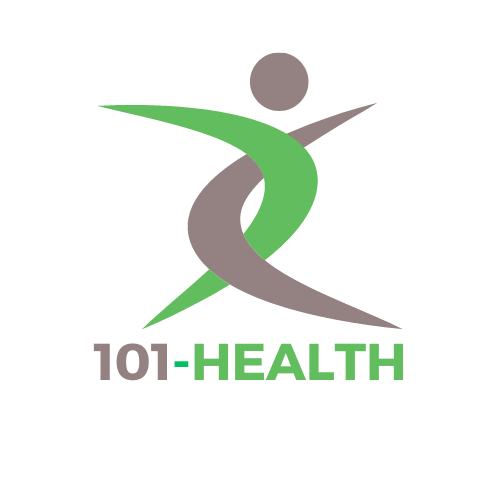The keto diet is a high-fat, low-carb eating plan originally designed to help people lose weight. Unfortunately, it is also proving to do the opposite—the keto diet makes you lose muscle mass and increase your body fat percentage, two things that are proven to cause weight gain.
Moreover, the keto diet is a proven source of ketone bodies, which assists in fat burning and a reduction in the storage of body fat. In this article, we review the health risks and benefits of the keto diet and the best sources of protein, fats, and carbohydrates on the keto diet. Read on to learn more!
What is the keto diet?
The keto diet is a low-carb eating plan originally designed to help people lose weight. The keto diet is high in fat and moderates in protein, and it is typically low in carbohydrates. However, you can eat carbohydrates while on the keto diet as long as they are used for power to produce more ketones.
The keto diet is a very low-carb, high-fat diet high in protein and low in carbs. You may not be able to consume foods with carbohydrates on the keto diet, including sugar, honey, milk, etc. However, some fruits such as avocados, almonds, avocados, butter, ghee, and natural and collagen-based foods can be consumed on the keto diet.
Health benefits of a ketogenic diet
The best benefits of the ketogenic diet are appetite control, reduced body fat, improved cognitive function, and improved metabolic health. Here are the health benefits of the ketogenic diet: Weight loss: It is a highly effective way to lose weight because it drastically reduces the amount of body fat you consume.
Type 2 diabetes: Research shows that people on the keto diet can reduce their risk of developing type 2 diabetes by 50%. Cancer prevention: A study in mice reported that the ketogenic diet might lower the risk of developing cancer by as much as 50%.
Increased satiety: The diet is also believed to increase the satiety factor in the foods you consume, improving your ability to control weight and feel full for longer periods. Improved cognitive function: People on a diet have been reported to have an increased “mindfulness” level, which can improve their ability to think and reason critically.
Increased metabolism: The diet has been proven to increase the metabolic rate by up to 2 times. Belly button buster: A study in humans concluded that the diet could boost the growth of-19, a protein believed to be responsible for building muscle in the body.
Health risks of a ketogenic diet
The biggest health risk of the keto diet is obesity, which can increase the risk of conditions such as type 2 diabetes, heart conditions, and even certain cancers because people who are obese tend to have more body fat than leaner people.
As we mentioned above, the diet is also harmful to your muscle and liver cells, which are essential to your health and are likely to get destroyed on a low-fat diet. According to experts, here are the risks and benefits of the keto diet: Risk of diabetes: As we have discussed, people on a diet have a higher risk of developing type 2 diabetes because they consume less insulin than insulin-dependent people.
Increased risk of high blood pressure: The diet may increase blood pressure in people with high blood pressure. Increased risk of metabolic diseases: A study in mice suggests that the diet may increase the risk of type 2 diabetes and liver disease.
Increased risk of being pregnant: A study in pregnant mice suggests that a high-fat diet during pregnancy may cause birth defects. Stronger immune system: The diet also promotes the growth of gut-inflammation-fighting cells called macrophages, which help your body defend against infections. Increased risk of certain cancers: A study of people concluded that a diet high in carbohydrates and protein is likely to increase cancer risk.
Best sources of protein on the keto diet
Many people on the keto diet rely heavily on animal proteins like meat, fish, and poultry because they are inexpensive and easy to find. Although these foods are a great source of protein, they are also high in saturated fat.
Vegetables are a good source of fiber and vitamins, but they are a common source of protein. Including a variety of vegetables in your diet can help ensure you get enough fiber, vitamins, and protein. If you are a frequent traveler, you may be interested in trying out the keto diet and the best ways to take animal protein with you. You can easily purchase pre-portioned canned meats, fish, and seafood or make your meals from wild meats like opossum, raccoon, and prairie dogs.
Fats on the keto diet
There are many ways to get fats on the keto diet: Dietary fats: You can eat oils such as coconut, avocado, and nuts or make your salad dressing or butter. Exogenous fats: These are the fats you eat by taking a pill or putting some oil in your food. You can find these in protein bars, shakes, and soups.
Oils you eat on the spot: You can add oils like peanut, sunflower, or olive to your salad. Fat in your coffee: You can also drink coffee with fats since they are very similar in chemical composition. Nut and seed butter: These are made from nuts and seeds, and they are also full of healthy fats.
They are a good source of EFA (eicosanoids), which have anti-inflammatory properties and have been proven to reduce the risk of various chronic diseases. Butter in your coffee: You can also add butter to your coffee in place of oil for a more savory meal.
Conclusion
The ketogenic diet is a high-fat, low-carb eating plan originally designed to help people lose weight. Unfortunately, it is also proving to do the opposite—the keto diet makes you lose muscle mass and increase your body fat percentage, two things that are proven to cause weight gain.
Moreover, the keto diet is a proven source of ketone bodies, which assists in fat burning and a reduction in the storage of body fat. The keto diet is a great way to help your body transition from fat to fuel. The only problem is that it can be very hard to stick to a ketogenic diet for longer than a month.
To get the maximum benefits of the keto diet, you need to be deliberate in your approach. Keep in mind that the diet should be changed gradually over long periods so as not to overwhelm your body with change. Look for diets that ease into low-carbohydrate eating rather than going straight for a low-fat option.
Source: www.exercisemag.com – Exercise and Nutrition Advisor The article above was written by Exercise and Nutrition Advisor. We hope you enjoy reading our blog as much as we do!






